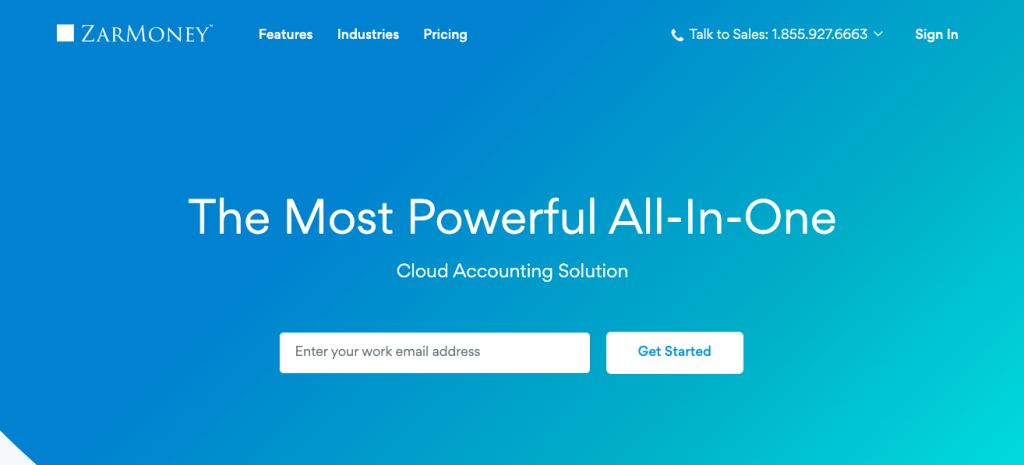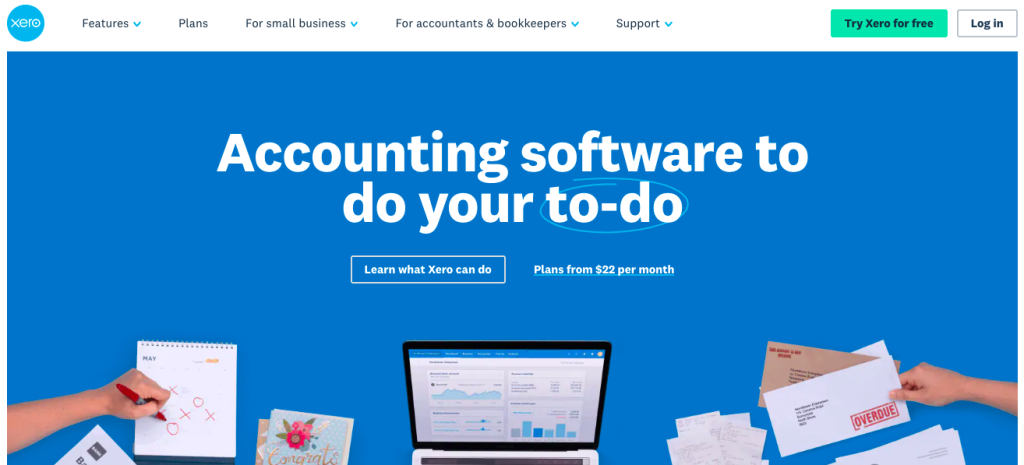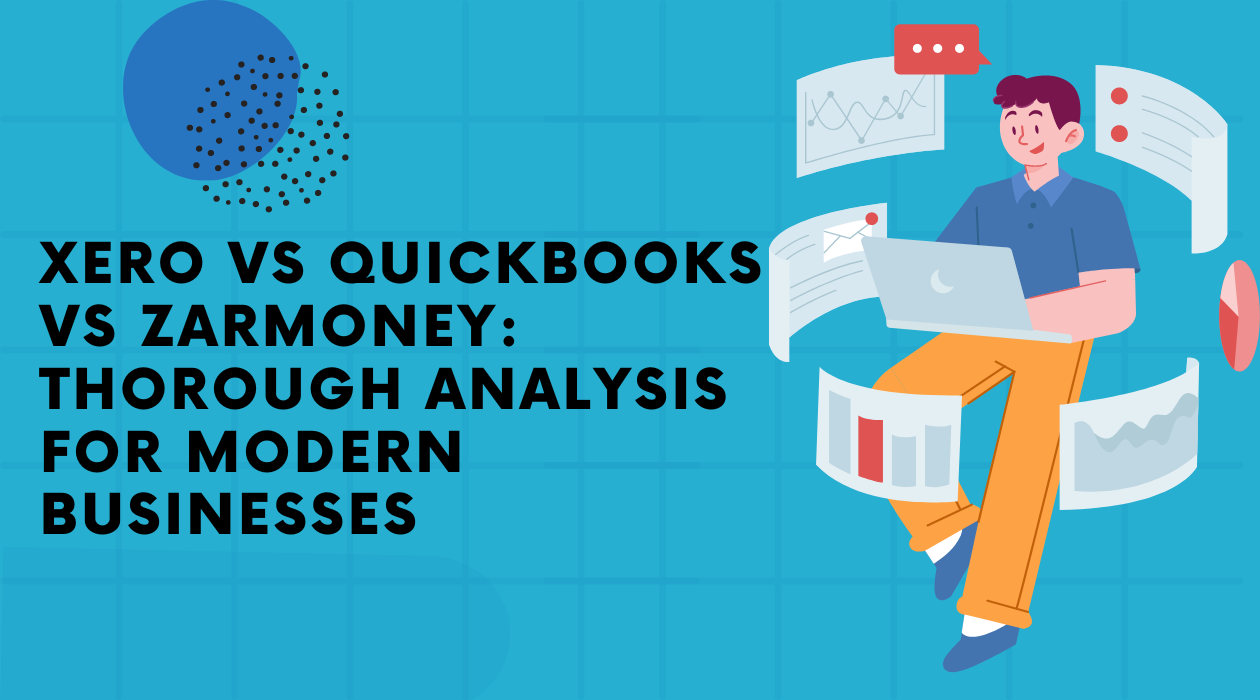In today’s fast-paced business environment, choosing the right accounting software is crucial for streamlining financial management and improving efficiency. Among the plethora of options available, Xero, QuickBooks, and ZarMoney are three prominent solutions that businesses consider. This blog provides an in-depth analysis of these platforms, with a special focus on ZarMoney—exploring its features, advantages, disadvantages, and pricing to help you decide if it’s the right fit for your business needs.
1. ZarMoney

ZarMoney is a robust cloud-based accounting solution designed to cater to the needs of small to medium-sized businesses and is one of the best alternatives to Quickbooks and Zipbooks. It offers a unique blend of flexibility and functionality, allowing businesses to manage their finances effectively without the complexities often associated with sophisticated accounting software.
Key Features of ZarMoney
- Customizable Invoices
- Inventory Management
- Expense Tracking
- Bank Reconciliation
- Financial Reporting
- Multi-User Access.
- Cloud-Based Access
- Customer and Vendor Management
- Budgeting Tools
- Support for Multiple Currencies
Top 3 Features Explained
- Customizable Invoices:
ZarMoney stands out with its highly customizable invoicing system that allows businesses to create invoices that not only look professional but also align closely with the brand’s visual identity. This feature helps in maintaining brand consistency across all financial documents.
- Inventory Management:
The robust inventory management system is ideal for businesses that require detailed tracking of stock levels and supplies. It supports multiple warehouses and gives real-time insights into inventory status, which helps in making informed purchase and sales decisions.
- Financial Reporting:
Comprehensive reporting tools offered by ZarMoney provide deep insights into your business’s financial health. From profit and loss statements to balance sheets and cash flow analysis, these reports are invaluable for strategic planning and decision-making.
Pros
- Comprehensive feature set that covers a wide range of financial tasks.
- Flexible and user-friendly interface.
- Effective customer support and resources.
Cons
- May be overwhelming for very small businesses or sole proprietors.
- Some users report a steep learning curve with advanced features.
Pricing
ZarMoney offers a tiered pricing structure to accommodate various business sizes and needs. The pricing starts from $15 per month for the basic plan, which includes all core accounting features. The premium plans offer additional capabilities such as advanced reporting and dedicated support, with prices varying based on the number of users and the extent of features required.
Final Verdict
ZarMoney is a compelling choice for businesses that need a comprehensive, scalable, and flexible accounting solution. While it might have a slight learning curve, the breadth of its features and the ability to customize make it a worthy investment for those looking to streamline their financial processes.
This analysis provides a detailed look at ZarMoney within the context of popular alternatives like Xero and QuickBooks. By understanding the unique offerings and limitations of each, businesses can make an informed decision tailored to their specific needs.
2. Xero

Xero is a robust cloud-based accounting software designed for small to medium-sized businesses. Renowned for its real-time financial overview and easy accessibility, Xero has become a popular choice among entrepreneurs and accountants who seek efficient management of their financial tasks.
Features of Xero
- Automated daily bank feeds
- Invoicing
- Dashboard
- Cloud-based
- Mobile App
- Multi-currency support
- Expense claims
- Inventory management
- Payroll integration
- Project tracking
Top 3 Features
- Automated daily bank feeds:
This feature ensures that all your banking transactions are automatically synced with Xero, reducing manual entry errors and saving time.
- Invoicing:
Xero’s invoicing system is not only customizable but also interactive. Clients can view, print, and pay invoices directly through a secure online portal.
- Dashboard:
The intuitive dashboard provides a comprehensive overview of your business’s financial status, including upcoming bills, pending invoices, and overall cash flow, helping you make informed decisions quickly.
Pros
- User-friendly interface
- Strong security measures
- Extensive integration
Cons
- Learning curve
- Limited customization in reports
- Pricing
Pricing
Xero offers three pricing plans:
- Early: Designed for freelancers and sole traders at $12 per month.
- Growing: Perfect for growing small businesses at $34 per month.
- Established: Advanced features for established businesses at $65 per month.
All plans offer a 30-day free trial, giving users a chance to explore the features without any financial commitment.
Final Verdict
Xero is a great Quickbooks alternative and stands out as a comprehensive solution for business accounting, with its real-time data updates and extensive third-party integrations. While it may present a steep learning curve and higher pricing, the benefits of streamlined and secure financial management make it a worthy investment for businesses looking to scale efficiently. Ideal for those who prioritize accessibility and integrated financial operations, Xero offers a compelling mix of features that can cater to a variety of business needs.
3. QuickBooks

QuickBooks is an accounting software developed by Intuit, designed to streamline financial management for small to medium-sized businesses. It offers a comprehensive suite of features aimed at facilitating everything from payroll processing to expense tracking. Over the years, QuickBooks has established itself as a leading tool in the market due to its user-friendly interface and robust functionality.
Key Features of QuickBooks
- Invoicing
- Expense Tracking
- Accounting Reports
- Cash Flow Management
- Time Tracking
- Inventory Management:
- Payroll Processing
- Tax Preparation
- Payment Processing
- Budgeting
Top Features Explained
- Invoicing:
QuickBooks allows users to create personalized invoices that can match the branding of the business, making it easy to send detailed, professional invoices directly to clients.
- Expense Tracking:
With its mobile integration, QuickBooks enables users to manage their expenses on-the-go by capturing receipts using their mobile device, helping ensure all expenses are accurately recorded without hassle.
- Accounting Reports:
Access to comprehensive accounting reports helps businesses make informed financial decisions and track their performance over various periods.
Pros
- Comprehensive Feature Set
- User-Friendly
- Scalability
Cons
- Cost
- Complexity
- Limited Customization
Pricing
QuickBooks offers several pricing tiers to fit various business sizes and needs. The Simple Start plan begins at $25 per month, Essentials at $50 per month, and Plus at $80 per month. Each tier offers incremental capabilities, with the higher tiers supporting features like inventory management and time tracking.
Final Verdict
QuickBooks remains a top choice for many businesses due to its depth of features and reliability. It strikes a good balance between comprehensive financial tools and user-centric design. However, the pricing and complexity might not make it suitable for all. Businesses looking for extensive features and scalability will find QuickBooks an invaluable tool, while those with tighter budgets or minimal accounting needs may want to explore simpler options.
Best of the Best: Comparing Xero, QuickBooks, and ZarMoney

1. ZarMoney
ZarMoney stands out as the best overall choice due to its scalability, making it suitable for both small startups and large enterprises. It offers customizable invoices that help maintain your brand’s identity and advanced reporting features that provide deep insights through powerful, customizable financial reports. ZarMoney also excels in inventory management, enabling efficient tracking of inventory levels, managing stock, and streamlining your supply chain. Additionally, its collaborative tools allow multiple users to work together seamlessly, with varying permission levels ensuring security and control. ZarMoney’s comprehensive features and user-friendly interface make it the top choice for businesses seeking a versatile and efficient accounting solution.
2. QuickBooks
QuickBooks, developed by Intuit, is one of the most popular accounting software solutions available, widely used by small to medium-sized businesses around the globe. It offers a comprehensive suite of financial tools designed to streamline accounting processes, including features such as invoice management, expense tracking, cash flow management, and tax preparation. QuickBooks also provides extensive third-party app integrations and a user-friendly interface with strong reporting capabilities. However, its higher pricing tiers and occasional performance issues may be a consideration for some businesses. Despite these drawbacks, QuickBooks remains a powerful and reliable choice for many.
3. Xero
Xero is another strong contender in the accounting software market, particularly favored by small businesses and startups. Known for its intuitive and easy-to-use interface, Xero offers essential features such as invoicing, expense tracking, bank reconciliation, and project management. It also supports a wide range of third-party integrations and provides strong customer support. While Xero is highly effective for smaller operations, its limited scalability and fewer advanced features compared to ZarMoney and QuickBooks may make it less suitable for larger businesses. Nonetheless, Xero’s simplicity and efficiency make it an excellent option for small businesses seeking a straightforward and reliable accounting solution.
Conclusion
In conclusion, choosing the right accounting software for your business depends on your specific needs and budget. ZarMoney stands out as the best overall choice due to its scalability, extensive features, and user-friendly interface, making it suitable for both small startups and large enterprises. QuickBooks, while more expensive, offers a robust and comprehensive suite of tools that can greatly benefit medium-sized businesses. Xero is an excellent option for small businesses seeking a straightforward and efficient accounting solution with an intuitive interface. Each software has its strengths and weaknesses, so consider what features are most important for your business before making a decision.
FAQs
1. What is the main advantage of using ZarMoney over QuickBooks and Xero?
ZarMoney offers superior scalability and customization, making it suitable for both small and large businesses. It also provides advanced inventory management and comprehensive reporting features.
2. Is QuickBooks suitable for small businesses?
Yes, QuickBooks offers various pricing tiers and features that can accommodate small businesses, though it may be more expensive than other options.
3. Does Xero support third-party integrations?
Yes, Xero supports a wide range of third-party integrations, making it easy to connect with other business tools you may be using.
4. Can multiple users access QuickBooks simultaneously?
Yes, QuickBooks allows multiple users to access the software with different permission levels, ensuring secure collaboration.
5. How does ZarMoney handle inventory management?
ZarMoney offers robust inventory management tools that allow you to track inventory levels, manage stock, and streamline your supply chain efficiently.
6. Is there a mobile app for QuickBooks?
Yes, QuickBooks offers a mobile app that allows you to manage your business finances from anywhere.
7. What kind of customer support does Xero offer?
Xero provides strong customer support, including online resources, tutorials, and direct assistance to help users navigate the software.
8. Can QuickBooks automate tax calculations?
Yes, QuickBooks automates many aspects of tax preparation, including calculating sales tax and organizing year-end tax information.
9. Is ZarMoney suitable for startups?
Absolutely, ZarMoney is highly scalable and offers features that cater to the needs of startups, making it a versatile choice for new businesses.
10. Which software is the most cost-effective for small businesses?
Xero is often considered the most cost-effective for small businesses due to its lower pricing and essential features that are easy to use.



